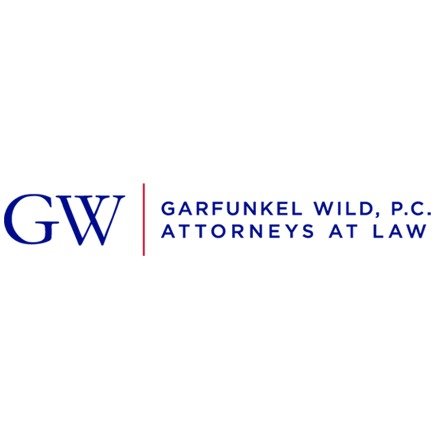Best Business Registration Lawyers in New York
Share your needs with us, get contacted by law firms.
Free. Takes 2 min.
Or refine your search by selecting a city:
List of the best lawyers in New York, United States
About Business Registration Law in New York, United States
Business registration in New York is the legal process of establishing your company as an officially recognized entity under the laws of the state of New York. Whether you are starting a sole proprietorship, partnership, corporation, or limited liability company (LLC), you must comply with state and local regulations, file necessary documents, and meet various requirements. Registering your business ensures tax compliance, limits personal liability, and enhances credibility with customers and financial institutions.
Why You May Need a Lawyer
Business registration can seem straightforward, but there are several situations where legal help is highly beneficial. You may need a lawyer if you are unsure about the best business structure for your needs, want to protect your personal assets, need guidance on compliance with city or state laws, are entering into a partnership, or need help drafting bylaws or operating agreements. A lawyer can also assist in resolving registration errors, protecting intellectual property, or navigating local licensing and permitting issues. For foreign owners or complex business structures, professional legal advice is even more important to ensure all legal obligations are met.
Local Laws Overview
New York business registration laws revolve around the state’s Business Corporation Law, Limited Liability Company Law, and related statutes. Every business must register the appropriate entity with the New York Department of State Division of Corporations. Key local requirements include choosing a unique business name, validating name availability, appointing a registered agent for service of process, and providing a principal business address. LLCs must publish a notice of formation in two newspapers. Certain businesses must obtain city or county-level licenses. All businesses must register with the New York State Department of Taxation and Finance for tax purposes and may need additional federal or state permits depending on the type of business conducted.
Frequently Asked Questions
What type of business structure is best for my company?
The ideal business structure depends on your goals, liability concerns, and tax situation. Common options include sole proprietorship, partnership, corporation, and LLC. Each has advantages and disadvantages regarding personal liability, funding, and taxation.
How do I check if my desired business name is available in New York?
You can search the Corporation & Business Entity Database on the New York Department of State’s website to check name availability.
Do I need to register my business if I am operating as a sole proprietor?
Sole proprietors using their legal name do not need to register with the state, but if operating under a different name, you must file a "Doing Business As" (DBA) certificate with the county clerk.
What documents are required to register a corporation in New York?
Corporations must file a Certificate of Incorporation with the Department of State and include details such as corporate name, purpose, county location, and registered agent information.
What is the publication requirement for LLCs?
New York LLCs must publish a notice of formation in two newspapers (one daily and one weekly) for six consecutive weeks and then file an affidavit of publication with the state.
How much does it cost to register a business in New York?
Fees vary depending on the business structure. Currently, forming an LLC costs around 200 dollars while a corporation certificate is about 125 dollars. Additional fees apply for DBAs, publications, and expedited processing.
Do I need any business licenses or permits?
Depending on the nature of your business and location, you may need state, city, or county licenses or permits. Common examples include sales tax permits, professional licenses, health permits, and home occupation permits.
How do I get an Employer Identification Number (EIN)?
You can apply for an EIN through the Internal Revenue Service (IRS) either online, by mail, or by fax. This number is required for tax purposes, hiring employees, and opening a business bank account.
What ongoing compliance requirements exist in New York?
Businesses must file ongoing biennial statements, pay state taxes, renew necessary licenses, and maintain proper records. Corporations and LLCs must keep up with additional state filing requirements.
Can a foreign business register to operate in New York?
Yes, foreign (out-of-state or international) companies must qualify by filing an Application for Authority and providing proof of existence from their home jurisdiction.
Additional Resources
- New York Department of State Division of Corporations: The primary state agency for business formation filings, name searches, and compliance. - New York City Small Business Services: Offers guides, workshops, and licensing information. - New York State Department of Taxation and Finance: Handles tax registration and compliance guidance. - Local County Clerk Offices: Accept DBA filings and offer business certificates. - SCORE New York: Provides free business mentorship and registration resources.
Next Steps
If you are considering registering a business in New York and need legal assistance, start by identifying your business goals and structure. Gather all necessary documentation, research required permits, and determine your compliance obligations. Then, consult with a qualified business attorney in New York who can review your situation, explain your options, prepare and file legal documents, and guide you through each step of the registration process. Reaching out to local business organizations or legal aid services can also provide valuable support. Taking careful, informed action at each stage will help ensure a smooth and compliant registration for your new business.
Lawzana helps you find the best lawyers and law firms in New York through a curated and pre-screened list of qualified legal professionals. Our platform offers rankings and detailed profiles of attorneys and law firms, allowing you to compare based on practice areas, including Business Registration, experience, and client feedback.
Each profile includes a description of the firm's areas of practice, client reviews, team members and partners, year of establishment, spoken languages, office locations, contact information, social media presence, and any published articles or resources. Most firms on our platform speak English and are experienced in both local and international legal matters.
Get a quote from top-rated law firms in New York, United States — quickly, securely, and without unnecessary hassle.
Disclaimer:
The information provided on this page is for general informational purposes only and does not constitute legal advice. While we strive to ensure the accuracy and relevance of the content, legal information may change over time, and interpretations of the law can vary. You should always consult with a qualified legal professional for advice specific to your situation.
We disclaim all liability for actions taken or not taken based on the content of this page. If you believe any information is incorrect or outdated, please contact us, and we will review and update it where appropriate.
Browse business registration law firms by city in New York
Refine your search by selecting a city.
















